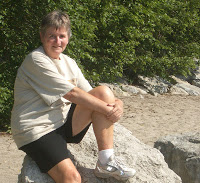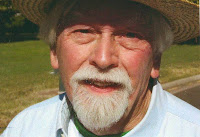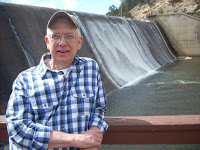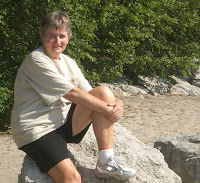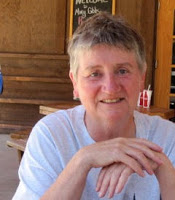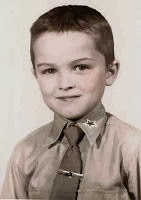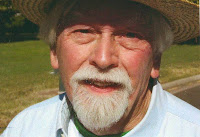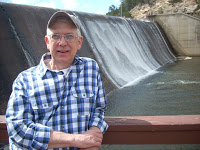Hmm … tricky. But so wonderful. Empathy eliminates hate, resentment, envy, in fact most negative emotions you can name. It replaces them with peace for the soul. But it’s not easy.
Perhaps some people are just naturally given easier access to it than others, but I believe we can all improve our capacity for empathy no matter the starting point.
Empathy requires the ability to see through another’s eyes, to feel what they feel and to stand in their shoes. For me, that requires some commonality with that person. In general I find a more intuitive empathy with a woman, for instance, than with a man. I frequently am able to find that empathy with men but it requires more work; more of a thought process to get me there. I easily empathize with the poor and dispossessed. I know, as many of us do, that my good life has come to me purely by chance. We look at the sad people on the street corner and say, there but for the grace of God go I. Most people can feel empathy with a child; we have all been one. All of us in this room, by our age, find easy empathy with grief. We have all felt it. Surely the entire LGBT community feels a kind of collective empathy, it’s one of the reasons we like to be together. We don’t have to explain ourselves to each other.
There is a great deal of talk of sexual harassment/abuse in the last couple of weeks. I immediately empathize with the woman, but have a struggle with the man. I can honestly say that I have never ever grabbed at or fondled any man or woman in any way inappropriately. Nor have I ever had any urge to do so. But if I think as honestly as I truly can about the lesser varieties of what we now term sexual harassment, I begin to see it through the man’s eyes. Men of our generation have lived in confusing times. I honestly think that most, certainly many, who acted incorrectly, really believed that women wanted what men wanted. We had to put up some token objection because our mothers said we should, but we didn’t really mean it; that old no really means yes syndrome. All too frequently, our protests did perhaps lack conviction. We were in a quandary. If we came on too strong with an ego-deflating rejection then the man, almost inevitably in a position of power over us, might take revenge. We would lose our job, or fail to get that deserved promotion or starring role. Or the man held some respected position in the community: priest, schoolteacher, doctor, lawyer, who would believe us if we spoke out? So we kept quiet. Other women were bribed into silence, leaving others open to the same abuse. Not that I blame the women who got bought off. Oh no, empathy with them comes easy. Which would you choose? Door #1, behind which lies nothing but screaming tabloid headlines and endless character assassinations, or door #2 which opens onto an easy life with everything that twenty million dollars can buy? No contest. And so, sadly, in different ways, we women were complicit in our own demise while men, lacking much evidence to the contrary, convinced themselves that we really did want what they wanted.
Don’t get me wrong, I am talking here of the relatively benign offenses causing perhaps more discomfort and embarrassment than true trauma. Anything remotely approaching physical violence, rape, or pedophilia lies way way beyond the scope of my empathy. Which leads inevitable to that incredibly revolting excuse for a human being, Judge Moore of Alabama, who lies somewhere in the outer reaches of darkness millions of light years away from that little flash of illumination coming from any feelings of empathy from me. He is triply out of reach to me because not only is his behavior reprehensible, but he continues to deny it, and then wraps it all up in the cloak of religion and The Bible. I make no attempt to see what he sees; it would be of nightmare ugliness.
Those who support him are every bit as bad; possibly worse. The Alabama State Auditor, for example, sees nothing wrong with Moore making sexual advances to a fourteen year-old.
“There’s just nothing immoral or illegal here…,” Ziegler stated. “… Mary was a teenager and Joseph was an adult carpenter. They became parents of Jesus.”
Hello-o out there! Did he miss the memo about The Immaculate Conception and The Virgin Birth?? Honestly, all you can do is shake your head in amazement. To raise one spark of empathy for these people I would need to think about it all for a very long time, and I have no stomach for that.
Every week when I start writing, I swear to myself that I will stay away from any mention of Trump, but somehow Agent Orange manages to insert himself. I have no empathy for Trump because I am not a sociopath, so cannot begin to stand in his shoes. But because he is, I truly believe, a sick man, I do not hate him either. Though when he so smugly promises us that ”big beautiful tax cut” for Xmas while in truth planning to raise our taxes and destroy our healthcare, I think just maybe I could.
Alas, empathy, like so many things, is a double-edged sword. The Orange Ogre (did I say I did not hate him??) stood in the shoes of a section of the country’s voters and saw what they saw. He felt their anger, resentment, and fear, and built it up to the fever pitch of “lock her up”. It was his very empathy with them, which he used with great cunning, which won him the election. (Though not without a little help from Putin and a shove over the line by the Electoral College.)
With the Trump voters, my empathy goes about half the distance to the goal. (Excuse the expression but we are in the midst of football season!) I can see the world through their eyes. I can feel their fear and anger and disillusion over a future of ongoing white male supremacy which they once felt was promised and which now seems to have been taken away. But I cannot accompany them into the divisiveness, bigotry, and hatred which accompanies their fears.
Since last year’s election our country seems to be enveloped in a stinking dark miasma of Trumpian vitriol. Yet I, ever the political pessimist, do feel some hope. And it comes to me via empathy. We call it Resistance, but what engenders that but empathy? Sure, we all have our own personal fears which propel us to resist the horrors of the Trump agenda, but the vast majority of American people demonstrate great empathy. We feel the terror of refugees denied sanctuary, the despair of deportees and their destroyed families, the terrible fears felt by the families of the nine million children who will lose the healthcare provided under the C.H.I.P. program unless Congress acts before year-end. We see through the eyes of those abandoned in the devastation that is Puerto Rico, and the 60,000 Haitians who learn they must abandon their lives in this country and return to Haiti.
We empathize. We get it. We resist. If Robert Mueller doesn’t save us, maybe our own empathy will. The bright light of empathetic resistance will dispel the threatening clouds of darkness. Maybe. Maybe that is our best hope. Maybe that is our last best hope. But then, I’m a political pessimist.
About the Author
I was born and raised in England. After graduation from college there, I moved to the U.S. and, having discovered Colorado, never left. I have lived in the Denver-Boulder area since 1965, working for 30 years at IBM. I married, raised four stepchildren, then got divorced after finally, in my forties, accepting myself as a lesbian. I have been with my wonderful partner Betsy for thirty years. We have been married since 2013.
